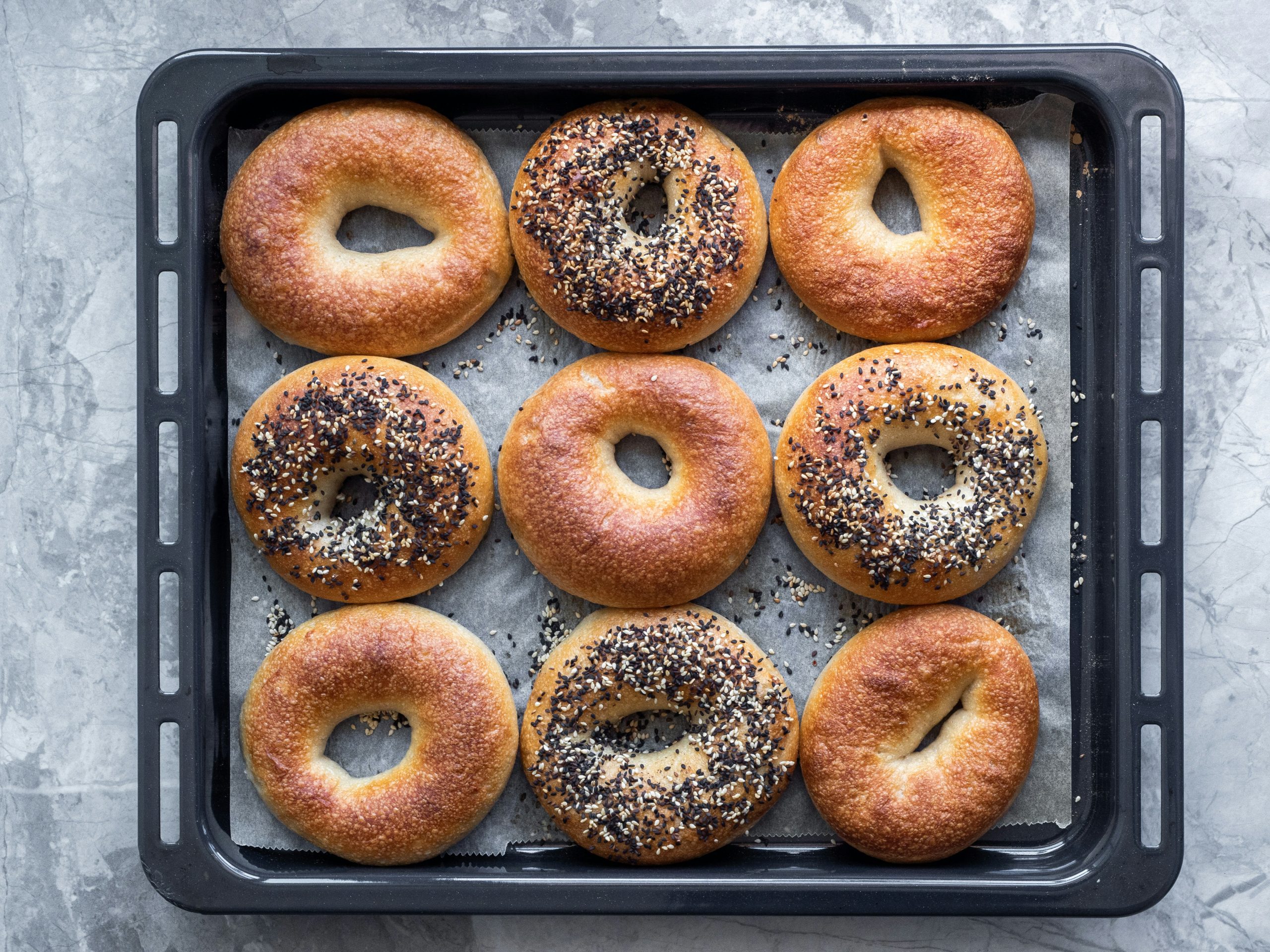1. The Misconception About Bagels
Bagels have a reputation as a healthy bread because they are made with little to no butter or sugar, have a plain taste, and are low in fat. It’s easy to think that eating a plain bagel without cream cheese or jam would be fine.
2. The ‘Density’ Trap
However, bagels are a representative bread that people with diabetes should be cautious about.
– High Carbohydrate Density: Bagels go through a process of being boiled in water before being baked. This process creates a very dense and chewy texture. This means that a bagel contains a much more compressed amount of flour compared to other breads of the same size. A single bagel (about 100g) typically contains more than 50g of carbohydrates, which is equivalent to a full bowl of rice.
– Use of Refined Flour: Most bagels are made from refined white flour, which raises blood sugar quickly.
– Blood Sugar Spike: The combination of high carbohydrate density and refined flour causes a very high and steep rise in blood sugar, a ‘blood sugar spike,’ upon consumption.
3. What is a Better Choice?
If you want to eat bread for breakfast, choosing 1-2 slices of 100% whole wheat bread, which is rich in dietary fiber, is much more advantageous for blood sugar management than a bagel. If you must eat a bagel, choose a whole wheat one, eat only 1/4 or 1/2 of it at a time, and pair it with plenty of protein and fiber, like eggs or a vegetable salad, to slow down the rate at which your blood sugar rises.
Summary: Despite its plain taste, a bagel is a very carbohydrate-dense bread that can cause a sharp spike in blood sugar. It should not be considered a healthy breakfast substitute, and its consumption requires great caution.


Leave a Reply